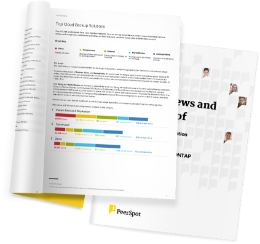The good thing is that there are improvements coming with later function levels for the z/OS Db2. I'd like it if, with the operating system that we've got, z/OS, on the mainframe, it would allow us to refresh the hardware to run Linux dockers on the mainframe. This means this might give us opportunities for different ways of coming into the Db2 environment in the future. We just want a bit more integration with Linux. That said, we are already seeing Linux more readily available on the mainframe environment. Not only have we got the premium operating systems on OS. We can run LPARs on the same mainframe footprint that is also supporting Linux. This is what has improved and made the mainframe environment more competitive. We're also looking at AI for Db2 as well, and machine learning for the future. We know that AI has come out, that we're going to get that, and we're going to evaluate that product next year for Db2. That said, I haven't got any real complaints about Db2 on the mainframe. For the most part, a lot of the problems we have nowadays are to do with communication between the various teams that you would class as stakeholders.




